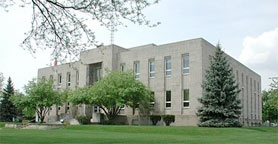Role and Responsibilities of the Planning & Zoning Department
We Are Here To Help
 The Bureau County Planning & Zoning Department is responsible for regulating construction activities in both the unincorporated area of the county and in all incorporated towns in Bureau
County without Municipal Zoning Controls.
The Bureau County Planning & Zoning Department is responsible for regulating construction activities in both the unincorporated area of the county and in all incorporated towns in Bureau
County without Municipal Zoning Controls.
The following municipalities fall under the jurisdiction of the Bureau County Zoning Ordinance:
- Arlington
- Buda
- Bureau
- Cherry
- Dover
- Hollowayville
- LaMoille
- Malden
- Manlius
- Mineral
- New Bedford
- Ohio
- Sheffield
- Wyanet
The Ordinance also covers the following unincorporated areas in Bureau County including:
- Kasbeer
- Langley
- Limerick
- Milo
- Normandy
- Providence
- Thomas
- Van Orin
- Whitefield
- Yorktown
- Zearing
If you are a resident within the incorporated boundaries of Dalzell, DePue, Ladd, Neposet, Princeton, Spring Valley, Tiskilwa or Walnut, and wish to contact the Planning and Zoning official in your community, contact information for each agency or official can be found by following the following link, Municipal Zoning Agencies.
If a citizen wishes to build in an area under the jurisdiction of the Bureau County Zoning Ordinance, this department should be contacted before the project begins to be certain all local regulations are met. This department regulates construction through zoning, flood hazard and subdivision regulations.
Zoning
The Bureau County Board adopted zoning regulations in 1965 in order to promote and protect the health, safety and general welfare of the citizens of the county. Zoning regulates the uses allowed on land and the location of improvements on that land, and the regulations are enacted according to the Illinois Compiled Statutes (55 ILCS 5/5-12001 et seq.)
The lands under the jurisdiction of this Ordinance are divided into districts or "zones". Certain types of uses are allowed in each of these districts. Citizens should be aware of the zoning classification that applies to their land, so that they can become aware of what activities are allowed under zoning.
Agriculture Exemption:
Certain agricultural uses are exempt from meeting local zoning requirements according to state law. If a citizen believes their proposed use may be exempt, it is suggested they verify that possibility with the zoning department and then confirm the information provided with their legal counsel.
Construction:
Permits for most construction projects are required before that construction starts. Occupancy certificates are issued upon completion of the construction project, or when the use on a tract of land changes. On residentially used land, for example, permits are generally required for most construction including new homes; additions to homes; decks, porches and patios; detached buildings, including small storage buildings (sheds); and. swimming pools (both above and below ground). Generally, three inspections are made during the course of construction.
Zoning Board of Appeals:
The Bureau County Zoning Board of Appeals (ZBA) is a five member citizen board organized under the zoning ordinance to hear several types of zoning issues. These include:
- Request for changes in zoning classification;
- Permission for certain uses under zoning named as "Conditional Uses" in the Zoning Ordinance;
- Request for relief from specific requirements of the Zoning Ordinance through variation requests;
- Appeal of a determination made by the Zoning Administrator.
A citizen may apply for a public hearing, pay a filing fee, and present his/her case to the ZBA. In the case of variations and appeals of determinations made by the Zoning Administrator (items 3 and 4, above), the ZBA makes a final administrative decision. However, in all other instances (items 1 and 2, above) the ZBA makes a recommendation to the full County Board for their final consideration.
Floodplain Regulations
The federal government has required local units of government to adopt regulations which restrict development activities on land designated by federal special flood hazard maps as being subject to 100-year flooding. These regulations are known as the Bureau County Floodplain Ordinance and are incorporated by reference in the Bureau County Zoning Ordinance and Subdivision Ordinance. They are fairly restrictive and allow only limited development activity. If there is any uncertainty as to whether a property is subject to the Bureau County Floodplain Ordinance, the applicant must provide certified information as to the elevation of the building site or development area in relation to the 100-year flood plain boundaries. Check with the Planning & Zoning Department to ascertain any potential problem with designated special flood hazard areas
Subdivision
The Planning & Zoning Department is charged with regulating the division of lands under the jurisdiction of the Bureau County Zoning Ordinance. The Subdivision Regulations were adopted in 1969 pursuant to Chapter 34, Section 5-1041 of the Illinois Compiled Statutes (765 ILCS 205/1). The regulations were revised in 1979, and are now known as the Bureau County Subdivision Ordinance.
Public Information Service
The Planning & Zoning Department cannot give legal advice on how citizens should proceed under the requirements of the Bureau County Zoning Ordinance, Bureau County Floodplain Ordinance, and Bureau County Subdivision Ordinance. It does, however, maintain a public information service to provide information concerning the regulations. The Department maintains records on all zoning and subdivision activity on tracts of land in the County and maintains aerial photographs of all areas in the County.

